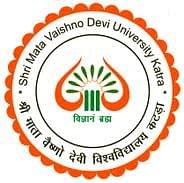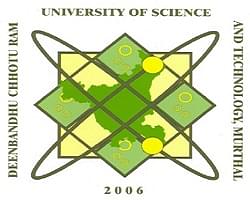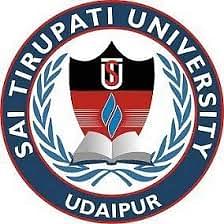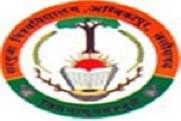Introduction about MA in history
A Master of Arts
(MA) in History from the top affordable college in India is a
graduate-level academic degree program designed to provide students with
advanced knowledge, skills, and expertise in the field of history. This program
offers an in-depth exploration of historical events, themes, methodologies, and
historiographical debates, allowing students to engage with the past
critically, analytically, and contextually.
The MA in History
curriculum typically covers a wide range of chronological periods, geographical
regions, and thematic areas within the discipline, offering students the
opportunity to specialize in particular topics of interest or develop a broad
understanding of historical developments across time and space.
Key components of
an MA in History program may include:
ü Advanced Coursework: Students take a series of advanced courses
that delve into specialized topics within history, such as political history,
social history, cultural history, economic history, intellectual history, or
global history. These courses provide students with theoretical frameworks,
methodological approaches, and historical perspectives to analyze and interpret
historical events, movements, and phenomena.
ü Research Methods and Techniques: The program typically includes training in
advanced research methodologies and techniques, including archival research,
textual analysis, historiography, oral history, digital humanities, and
quantitative methods. Students learn how to conduct original research,
critically evaluate primary and secondary sources, and communicate their
findings effectively.
ü Thesis or Research Project: Many MA in History programs require
students to complete a thesis or research project as a culminating component of
their degree. This involves conducting original research under the supervision
of a faculty advisor, addressing a specific research question or problem within
the field of history. Students are expected to demonstrate their ability to
conceptualize research, analyze historical evidence, and present their findings
in a scholarly manner.
ü Seminar Discussions and Colloquia: Students participate in seminar
discussions, colloquia, or workshops led by faculty members and guest speakers,
providing opportunities for intellectual exchange, interdisciplinary
collaboration, and professional development. These forums allow students to
engage with cutting-edge research, emerging trends, and debates within the
field of history.
ü Elective Courses and Specializations: Students may have the opportunity to
customize their curriculum by selecting elective courses or concentrations that
align with their interests and career goals. Specializations may be available
in areas such as public history, gender history, military history,
environmental history, or the history of specific regions or civilizations.
ü Fieldwork and Internships: Some MA in History programs offer
opportunities for fieldwork, internships, or applied research experiences,
allowing students to gain practical experience in archival work, museum
studies, public history projects, or community engagement initiatives. Fieldwork
may involve conducting oral history interviews, curating exhibits, or
participating in public history programs.
Overall, the MA in
History program prepares graduates for a wide range of career opportunities in
fields such as academia, research institutions, museums, archives, libraries,
government agencies, non-profit organizations, publishing companies, and the private
sector. Graduates possess advanced research skills, critical thinking
abilities, and communication proficiency that are highly valued in a variety of
professions and industries, making them well-equipped to contribute to the
understanding and interpretation of the past in today's society.
What is admission process for admission in MA
history?
The admission
process for the top Master of Arts (MA) in History in India can vary depending on the specific university
or college offering the program and the country in which it is located.
However, here's a general overview of the typical admission process:
![]() Research and Preparation: Prospective students should research
various universities or colleges that offer MA programs in history. They should
familiarize themselves with the admission requirements, program curriculum,
faculty expertise, and any specific features or opportunities offered by each
institution.
Research and Preparation: Prospective students should research
various universities or colleges that offer MA programs in history. They should
familiarize themselves with the admission requirements, program curriculum,
faculty expertise, and any specific features or opportunities offered by each
institution.
![]() Meet Admission Requirements: Applicants typically need to meet certain
admission requirements set by the university or college offering the MA in
History program. These requirements may include:
Meet Admission Requirements: Applicants typically need to meet certain
admission requirements set by the university or college offering the MA in
History program. These requirements may include:
![]() A bachelor's degree from an accredited
institution, usually with a major or significant coursework in history or a
related field. Some programs may accept applicants with degrees in other
disciplines if they demonstrate relevant knowledge or experience.
A bachelor's degree from an accredited
institution, usually with a major or significant coursework in history or a
related field. Some programs may accept applicants with degrees in other
disciplines if they demonstrate relevant knowledge or experience.
![]() Minimum GPA (Grade Point Average)
requirements, often ranging from 2.5 to 3.0 on a 4.0 scale.
Minimum GPA (Grade Point Average)
requirements, often ranging from 2.5 to 3.0 on a 4.0 scale.
![]() Submission of official transcripts from all
undergraduate institutions attended.
Submission of official transcripts from all
undergraduate institutions attended.
![]() Standardized test scores, such as the GRE
(Graduate Record Examination), may be required by some institutions, although
this requirement is becoming less common in recent years.
Standardized test scores, such as the GRE
(Graduate Record Examination), may be required by some institutions, although
this requirement is becoming less common in recent years.
![]() English language proficiency test scores
(e.g., TOEFL or IELTS) for non-native English speakers, if the program is
taught in English and the applicant's native language is not English.
English language proficiency test scores
(e.g., TOEFL or IELTS) for non-native English speakers, if the program is
taught in English and the applicant's native language is not English.
![]() Submit Application: Prospective students must complete and
submit an application form for admission to the MA in History program through
the university's or college's admissions office or online portal. The
application form may require personal information, academic history, statement
of purpose, letters of recommendation, resume or curriculum vitae (CV), and
sometimes an application fee.
Submit Application: Prospective students must complete and
submit an application form for admission to the MA in History program through
the university's or college's admissions office or online portal. The
application form may require personal information, academic history, statement
of purpose, letters of recommendation, resume or curriculum vitae (CV), and
sometimes an application fee.
![]() Provide Supporting Documents: Along with the application form,
applicants are usually required to submit supporting documents, which may
include:
Provide Supporting Documents: Along with the application form,
applicants are usually required to submit supporting documents, which may
include:
![]() Letters of recommendation from professors,
employers, or other individuals who can speak to the applicant's academic
abilities, research experience, and potential for success in graduate studies.
Letters of recommendation from professors,
employers, or other individuals who can speak to the applicant's academic
abilities, research experience, and potential for success in graduate studies.
![]() A statement of purpose or personal statement
outlining the applicant's academic interests, career goals, research
experience, and reasons for applying to the MA in History program.
A statement of purpose or personal statement
outlining the applicant's academic interests, career goals, research
experience, and reasons for applying to the MA in History program.
![]() Writing samples, such as research papers,
essays, or reports, demonstrating the applicant's analytical and writing
abilities.
Writing samples, such as research papers,
essays, or reports, demonstrating the applicant's analytical and writing
abilities.
![]() Any additional requirements specified by the
institution, such as a writing sample or portfolio of research projects.
Any additional requirements specified by the
institution, such as a writing sample or portfolio of research projects.
![]() Interviews (if required): Some universities or colleges may require
applicants to attend an interview as part of the admissions process. The
interview may be conducted in person, over the phone, or via video conference
and provides an opportunity for the admissions committee to assess the
applicant's suitability for the program, discuss their academic background and
research interests, and address any questions or concerns.
Interviews (if required): Some universities or colleges may require
applicants to attend an interview as part of the admissions process. The
interview may be conducted in person, over the phone, or via video conference
and provides an opportunity for the admissions committee to assess the
applicant's suitability for the program, discuss their academic background and
research interests, and address any questions or concerns.
![]() Wait for Decision: After submitting their application and
supporting documents, applicants typically have to wait for a decision from the
admissions committee. Admitted students will receive an offer of admission,
while others may be placed on a waitlist or denied admission.
Wait for Decision: After submitting their application and
supporting documents, applicants typically have to wait for a decision from the
admissions committee. Admitted students will receive an offer of admission,
while others may be placed on a waitlist or denied admission.
![]() Acceptance and Enrollment: Upon receiving an offer of admission,
students must formally accept the offer and complete any additional enrollment
steps required by the university or college, such as submitting a deposit,
completing housing forms, or attending orientation sessions.
Acceptance and Enrollment: Upon receiving an offer of admission,
students must formally accept the offer and complete any additional enrollment
steps required by the university or college, such as submitting a deposit,
completing housing forms, or attending orientation sessions.
Prospective
students should carefully review the specific admission requirements and
instructions provided by each institution offering the MA in History program
they are interested in and contact the admissions office if they have any
questions or need further clarification. Additionally, admission requirements
and processes may vary between institutions and may be subject to change, so
it's essential to stay informed and up-to-date throughout the application
process.
What is eligibility criteria for admission in MA
history?
The eligibility
criteria for admission to a Master of Arts (MA) in History program can vary
depending on the specific university or college offering the program and the
country in which it is located. However, here are some common eligibility
criteria that applicants may need to meet:
·
Educational
Qualifications: Applicants
typically need to have completed a bachelor's degree from an accredited
institution, usually with a major or significant coursework in history or a
related field. Some programs may accept applicants with degrees in other
disciplines if they demonstrate relevant knowledge or experience.
·
Minimum
GPA: Most MA in History
programs require applicants to have a minimum Grade Point Average (GPA) in
their undergraduate studies. The specific GPA requirement can vary between
institutions but is usually around 2.5 to 3.0 on a 4.0 scale.
·
Transcripts: Applicants are usually required to submit
official transcripts from all undergraduate institutions attended,
demonstrating their academic performance and coursework relevant to history or
related disciplines.
·
Standardized
Test Scores (if required):
Some universities or colleges may require applicants to submit scores from
standardized tests such as the Graduate Record Examination (GRE) or equivalent
exams. However, this requirement is becoming less common in recent years, and
many programs may waive it or make it optional.
·
English
Language Proficiency (for non-native English speakers): If the program is taught in English and
the applicant's native language is not English, they may need to demonstrate
proficiency in English through standardized tests such as the Test of English
as a Foreign Language (TOEFL) or the International English Language Testing
System (IELTS).
·
Letters
of Recommendation:
Applicants may be required to submit letters of recommendation from professors,
employers, or other individuals who can speak to their academic abilities,
research experience, and potential for success in graduate studies.
·
Statement
of Purpose or Personal Statement: Many MA in History programs require applicants to submit a statement
of purpose or personal statement outlining their academic interests, career
goals, research experience, and reasons for applying to the program. This
allows applicants to demonstrate their motivation and suitability for graduate
studies in history.
·
Writing
Samples (if required): Some
programs may request writing samples, such as research papers, essays, or
reports, to assess the applicant's analytical and writing abilities.
What is syllabus of MA history?
The syllabus for a
Master of Arts (MA) in History can vary significantly depending on the specific
university or college offering the program, the faculty expertise, and the
focus areas within history. However, I can provide a general overview of the
topics and areas of study commonly included in MA in History programs:
v Historiography and Methodology: Courses in historiography examine the
theory and practice of historical writing, exploring different
historiographical approaches, methodologies, and schools of thought. Students
learn about the evolution of historical interpretation, the role of primary and
secondary sources, and the construction of historical narratives.
v Core Courses in Historical Periods or
Themes: MA in History
programs typically offer core courses covering specific historical periods,
regions, or themes. These courses provide a foundational understanding of key
events, developments, and trends in history, allowing students to explore
different historical contexts and perspectives. Examples may include:
v Ancient History
v Medieval History
v Early Modern History
v Modern History
v Global History
v Comparative History
v Social History
v Political History
v Cultural History
v Economic History
v Research Seminars and Workshops: Research seminars and workshops provide
students with opportunities to develop research skills, engage in scholarly
discussions, and pursue independent research projects. These courses may focus
on specific topics or themes within history and typically involve reading and
analyzing primary and secondary sources, conducting original research, and
writing research papers.
v Thesis or Research Project: Many MA in History programs require
students to complete a thesis or research project as a culminating component of
their degree. This involves conducting original research under the supervision
of a faculty advisor, addressing a specific research question or problem within
the field of history. Students are expected to demonstrate their ability to
conceptualize research, analyze historical evidence, and present their findings
in a scholarly manner.
v Elective Courses and Specializations: Students may have the opportunity to
customize their curriculum by selecting elective courses or concentrations that
align with their interests and career goals. Specializations may be available
in areas such as:
v Gender and Women's History
v Military History
v Environmental History
v Intellectual History
v Diplomatic History
v Public History
v History of Science and Technology
v African, Asian, European, American, or
Middle Eastern History
v Language Requirement: Some MA in History programs may have a
language requirement, particularly if students plan to conduct research in a
specific geographic area or time period. Students may be required to
demonstrate proficiency in one or more foreign languages relevant to their
research interests.
v Internships and Applied Learning
Opportunities: Some
programs offer internships, practicum experiences, or applied learning
opportunities in collaboration with museums, archives, historical societies, or
cultural heritage organizations. These experiences allow students to gain
practical experience in public history, archival work, museum studies, or
community engagement.
What are scopes after MA history?
After completing a
Master of Arts (MA) in History from the top college , graduates have a
diverse range of career opportunities available to them across various sectors.
Here are some common career paths and scopes for individuals with an MA in
History:
Education and
Academia: Many MA in
History graduates pursue careers in education and academia, teaching history at
the secondary school level, community colleges, or universities. They may also
pursue further studies, such as a Ph.D. in History, and aspire to become
professors or researchers in academic institutions.
Archives and
Museums: Graduates may work
in archives, libraries, museums, or cultural heritage organizations, where they
can engage in archival research, preservation of historical documents and
artifacts, curation of exhibitions, or educational programming.
Historical Research
and Writing: MA in History
graduates can work as historical researchers, consultants, or writers for
research firms, publishing companies, media outlets, or historical
organizations. They may conduct research for documentaries, books, articles, or
digital media projects, contributing to public understanding and appreciation
of history.
Public History and
Heritage Management:
Graduates may pursue careers in public history, working in government agencies,
non-profit organizations, or heritage institutions to promote historical
awareness, conservation of cultural heritage, or interpretation of historical
sites and monuments.
Government and
Public Service: MA in
History graduates may work in government agencies, diplomatic services, or
policy research organizations, where they can apply their research and
analytical skills to inform public policy, international relations, or
government decision-making processes.
Archival
Administration and Records Management: Graduates with expertise in archival management and records
preservation can work as archivists, records managers, or information
specialists in government agencies, corporate archives, universities, or
research libraries.
Historical
Consulting and Heritage Tourism: Graduates may work as historical consultants or heritage tourism
specialists, providing expertise on historical interpretation, site management,
and cultural tourism development for government agencies, tourism boards, or
private sector companies.
Librarianship and
Information Science:
Graduates with an interest in information science may pursue careers in
libraries, specializing in historical collections, special collections, or
digital archives. They may also work as information professionals in research
institutions, academic libraries, or corporate settings.
Non-profit and
Advocacy Organizations: MA
in History graduates can work for non-profit organizations, advocacy groups, or
human rights organizations, where they can apply their historical knowledge to
promote social justice, advocate for marginalized communities, or preserve
cultural heritage.
Journalism and
Media: Graduates may work
as journalists, editors, or media producers, specializing in historical
reporting, documentary filmmaking, or historical journalism. They may
contribute to historical documentaries, podcasts, or multimedia projects for
print, broadcast, or digital media outlets.
These are just a
few examples of the many career paths available to graduates with an MA in
History. The interdisciplinary nature of history equips graduates with a
diverse set of skills, including research, critical thinking, communication,
and analytical abilities, which are highly valued in a wide range of
professions and industries. Ultimately, career choices will depend on
individual interests, skills, and career goals.












